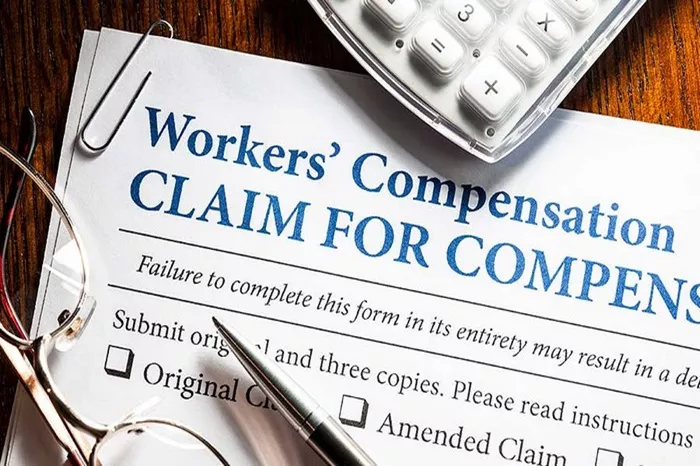Employers Liability Insurance is a crucial component of a comprehensive risk management strategy for businesses. This insurance provides protection for employers against claims made by employees who suffer injury or illness due to their work. Understanding why you need Employers Liability Insurance is essential for safeguarding your business and ensuring compliance with legal obligations. This article will explore the importance of Employers Liability Insurance, its benefits, and how it can protect both employers and employees.
What is Employers Liability Insurance?
Employers Liability Insurance is a type of insurance that covers businesses against claims made by employees who experience injury or illness due to their work environment or job duties. This insurance is designed to cover legal costs, compensation payments, and other expenses related to such claims.
Employers Liability Insurance is mandatory in many jurisdictions, and businesses are required to have it to comply with legal requirements. The coverage helps protect businesses from the financial impact of claims related to workplace accidents, occupational diseases, and other employment-related issues.
Legal Requirements for Employers Liability Insurance
In many countries, including the United Kingdom and the United States, Employers Liability Insurance is legally required for businesses with employees. The specific requirements vary by jurisdiction, but businesses generally need to maintain a certain level of coverage to comply with the law.
For example, in the United Kingdom, employers are required to have Employers Liability Insurance with a minimum coverage amount of £5 million. This requirement ensures that businesses can meet the financial demands of employee claims and provides a safety net for employees who suffer harm while on the job.
Benefits of Employers Liability Insurance
1. Protection Against Financial Loss
One of the primary benefits of Employers Liability Insurance is the protection it offers against financial loss. Workplace accidents and occupational diseases can result in substantial financial claims, including compensation payments, legal fees, and other expenses. Employers Liability Insurance helps cover these costs, ensuring that businesses are not burdened by the financial impact of such claims.
2. Compliance with Legal Obligations
Maintaining Employers Liability Insurance ensures that businesses comply with legal requirements. Failure to have the necessary coverage can result in significant fines, penalties, and legal consequences. By having the appropriate insurance in place, businesses can avoid these legal issues and demonstrate their commitment to employee welfare.
3. Support for Employee Welfare
Employers Liability Insurance provides support for employees who suffer from work-related injuries or illnesses. The insurance helps cover medical expenses, rehabilitation costs, and compensation for lost wages. This support can significantly benefit employees and contribute to their recovery and well-being.
4. Enhanced Business Reputation
Having Employers Liability Insurance can enhance a business’s reputation by demonstrating a commitment to employee safety and well-being. It shows that the business values its employees and is prepared to take responsibility for their welfare. This can positively impact the business’s image and attract potential clients and employees.
5. Protection Against Legal Claims
In the event of a legal claim, Employers Liability Insurance covers the costs associated with legal defense and settlement. This protection helps businesses navigate complex legal processes and reduces the financial burden of defending against claims. It also ensures that businesses can manage legal disputes effectively without significant disruption to their operations.
See Also: Do I Need Workers Compensation As A Sole Trader
Common Workplace Risks Covered by Employers Liability Insurance
1. Accidents and Injuries
Employers Liability Insurance covers a wide range of accidents and injuries that occur in the workplace. This includes slips, trips, and falls, as well as injuries caused by machinery, equipment, or hazardous substances. The insurance provides coverage for medical expenses, compensation payments, and legal costs associated with these types of claims.
2. Occupational Diseases
Occupational diseases are health conditions that arise due to exposure to harmful substances or conditions in the workplace. Employers Liability Insurance covers claims related to occupational diseases, such as respiratory illnesses, skin conditions, and repetitive strain injuries. The insurance helps cover medical treatment, compensation for lost wages, and other expenses related to these conditions.
3. Mental Health Issues
Mental health issues can also be covered by Employers Liability Insurance if they are related to work-related stress or harassment. Claims related to mental health conditions, such as anxiety, depression, or post-traumatic stress disorder, may be covered by the insurance. This coverage helps support employees who experience mental health challenges due to their work environment.
How to Choose the Right Employers Liability Insurance
1. Assess Your Business Risks
When selecting Employers Liability Insurance, it is essential to assess your business risks and identify the coverage you need. Consider the nature of your business, the types of work your employees perform, and any specific risks associated with your industry. This assessment will help you determine the appropriate level of coverage and ensure that you are adequately protected.
2. Compare Insurance Providers
Comparing insurance providers is crucial for finding the best Employers Liability Insurance for your business. Look for providers with a strong reputation, competitive premiums, and comprehensive coverage options. Review the terms and conditions of different policies to ensure that they meet your needs and provide adequate protection.
3. Understand Policy Exclusions
It is important to understand the exclusions and limitations of your Employers Liability Insurance policy. Some policies may have exclusions for certain types of claims or specific circumstances. Review the policy details carefully and seek clarification from the insurance provider to ensure that you have a clear understanding of what is covered.
4. Regularly Review and Update Coverage
As your business evolves, it is important to regularly review and update your Employers Liability Insurance coverage. Changes in your business operations, workforce size, or industry risks may require adjustments to your policy. Regular reviews help ensure that your coverage remains adequate and aligned with your current needs.
Conclusion
Employers Liability Insurance is an essential component of a comprehensive risk management strategy for businesses. It provides protection against financial loss, ensures compliance with legal requirements, supports employee welfare, enhances business reputation, and offers protection against legal claims.
By understanding the importance of Employers Liability Insurance and selecting the right coverage for your business, you can safeguard your operations, protect your employees, and ensure that you are prepared to handle potential claims effectively. Investing in Employers Liability Insurance is a proactive step towards managing workplace risks and demonstrating a commitment to employee safety and well-being.





















